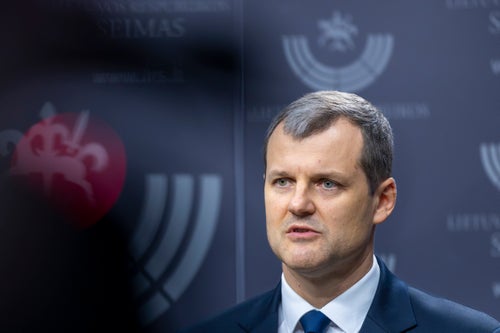Gintautas Paluckas, the Lithuania Prime Minister, has officially stepped down from his position, triggering a significant political shake-up within the nation. This pivotal development follows a series of intense government investigations into his financial and business dealings, which subsequently ignited widespread public protests across the capital, Vilnius, demanding his immediate resignation.
Paluckas, a relatively new figure on the political landscape and a leader within the center-left Social Democrats, had only recently ascended to the top leadership role late last year. His tenure began after a three-party coalition successfully formed following the parliamentary elections held in October, marking a fresh start for the Lithuanian government.
The immediate ripple effect of this political resignation is the anticipated departure of Paluckas’s entire cabinet. This collective resignation raises concerns about a potential void in effective governance for Lithuania, coming at a particularly sensitive time for the Baltic state.
The catalyst for Paluckas’s downfall was the relentless scrutiny from media outlets, which published extensive investigations into his past and present business activities starting in July. These reports brought to light alleged mishandlings, some dating back more than a decade, casting a shadow over his leadership.
Following these damning media revelations, Lithuania’s own anti-corruption and law enforcement agencies swiftly launched their independent probes into the allegations surrounding Gintautas Paluckas. The intensity of these official inquiries compounded the pressure on the Prime Minister.
The protests that erupted in Vilnius served as a powerful testament to public dissatisfaction and directly contributed to the mounting pressure on the prime minister. Citizens took to the streets, making their demands for accountability and change heard unequivocally.
Ultimately, Paluckas chose to resign prior to the opposition formally initiating impeachment proceedings against him, likely to mitigate further political turmoil. Attention now shifts to the inevitable new coalition talks, which are expected to commence shortly as the nation endeavors to form a stable new cabinet and restore governmental continuity.
Despite the internal political upheaval, Lithuania’s foreign policy is widely anticipated to remain consistent. The President, Nausėda, who holds a separate mandate, is known for his unwavering support of the European Union and NATO, ensuring stability in the nation’s international relations.
This swift and dramatic turn of events underscores the dynamic nature of Lithuania Politics, where public scrutiny and institutional integrity played a decisive role in shaping the country’s leadership. The coming weeks will be critical as the nation navigates this period of transition.






Leave a Reply